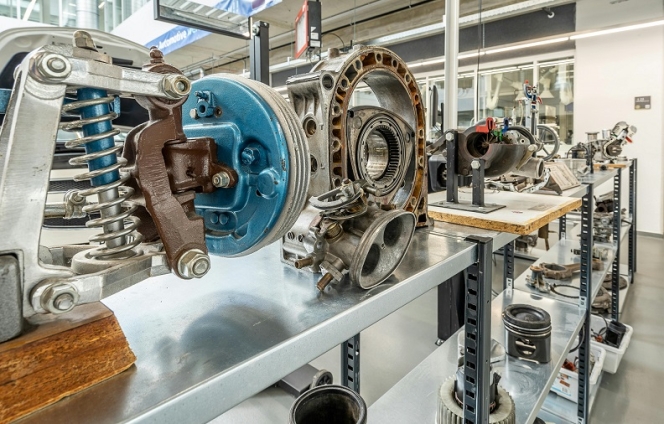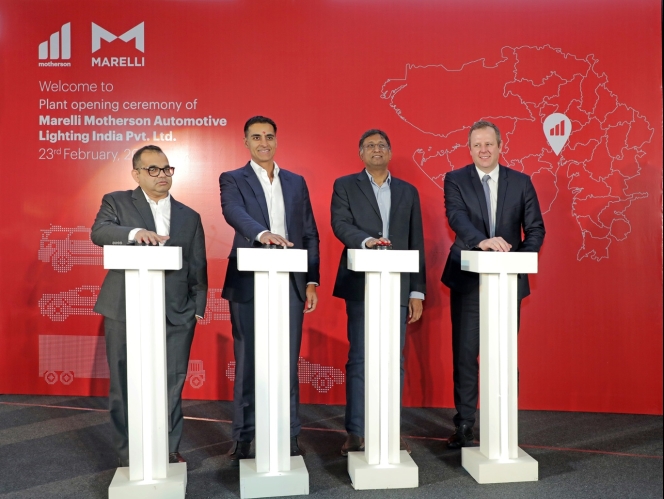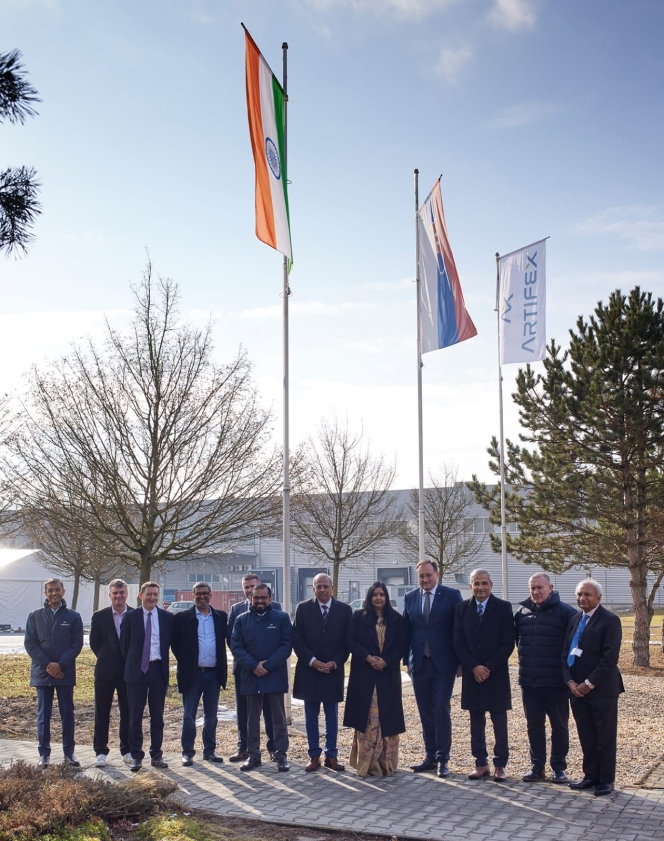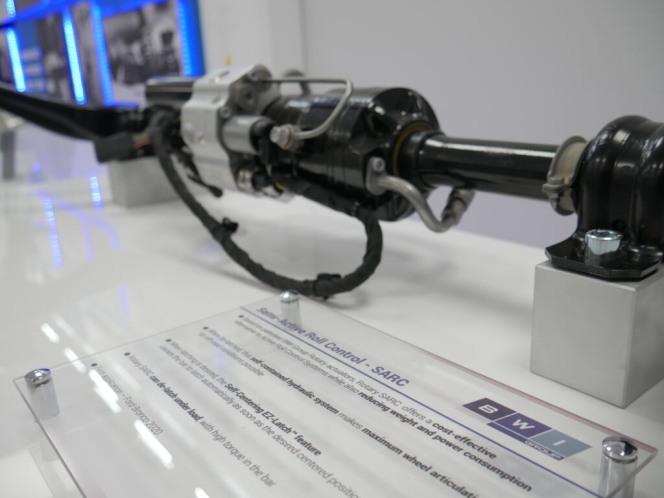Indian Auto Market Continues To Stand Tall Believes ACMA
- By MT Bureau
- July 08, 2025

The Indian automotive component industry clocked USD 80.2 billion in turnover in FY2025, which translates to 9.6 percent growth over USD 74.1 billion in FY2024 revealed by data from the Automotive Component Manufacturers Association (ACMA).
Interestingly, the domestic component industry was able to further widen its trade surplus to USD 453 million, as against USD 300 million last year, with exports growing at 8 percent, while imports grew by 7.3 percent. The industry believes that despite global challenges, the Indian automotive industry continues to stand tall and is further expected to continue its growth momentum across segments.
As per the data, the industry grew at a CAGR of 14 percent from FY2020 to FY2025, which translates to almost doubling the size in the past five-year period.
Vinnie Mehta, Director General, ACMA said, “The Indian auto component industry continues to exhibit remarkable resilience and growth. With OEM sales, exports and the aftermarket segments all growing positively.”
The Indian automotive industry primarily driven by passenger vehicle segment enabled the component industry to gain volumes, which now account for almost 43 percent of the total component sales to OEMs, followed by commercial vehicle at 25 percent and two-wheelers at 20 percent, among others.
Shradha Suri Marwah, President, ACMA & CMD, Subros, said, “The Indian auto component sector continues to be a cornerstone of the country’s manufacturing prowess. FY2025 was yet another milestone year where the industry’s growth was underpinned by strong domestic demand, rising exports, and increasing value addition. As India transitions towards new-age mobility, our industry is making the necessary strides in investments, technology and localisation to serve both domestic and global markets effectively.”
“The fiscal year witnessed broad-based growth and recovery across segments. While two-wheelers demonstrated robust growth, the passenger vehicle and commercial vehicle segments experienced steady, albeit moderate, momentum. On the exports front, ongoing geopolitical challenges have led to supply-chain challenges. Nevertheless, the industry continues to show remarkable resilience and remains in robust health. Investments in higher value-addition, technology upgradation and localisation are being accelerated to align with evolving customer expectations and global supply chain dynamics. However, the limited availability of rare-earth magnets remains a concern, underscoring the need for a national strategy on critical materials to secure the future of EV and mobility manufacturing in India,” added Marwah.
Exports & Imports
Coming to the exports, the auto component industry clocked USD 22.9 billion worth of exports, up 8 percent YoY, while imports came at USD 22.4 billion, up 7 percent YoY.
Engine components and Drive Transmission and Steering, remain the dominant segment, accounting for more than half of exports. While, Steering and Engine, remained the two dominant segments in imports, accounting for 57 percent of the total imports.
North America (USD 7.3 billion), followed by Europe (USD 6.74 billion) and Asia (USD 5.92 billion) were the top three export markets, which saw growth of 8.4 percent, -2.1 percent and 15.1 percent YoY respectively.
Coming to imports, Asia primarily driven by China (USD 14.91 billion), Europe (USD 5.77 billion) and North America (USD 1.65 billion) were the top three markets, which grew by 8.6 percent, 6.8 percent and 1.3 percent YoY respectively.
Aftermarket
The report found that the expansion of the automotive aftermarket was primarily driven by rising vehicle usage for both personal and commercial vehicles, with the growth being fuelled rural development in entry-level segments, shifting preference for larger vehicles and the increasing shift towards formal repair and maintenance market.
Tailwinds and Headwinds
The apex component body believes that India continues to be a key growth market globally, especially for the automotive industry with largely stable domestic demand, exports, infrastructure development, investments & capacity expansion, government push towards clean mobility and new entrants in the mobility space.
On the other hand, rising geopolitical challenges, increasing freight costs, available of rare earth magnets, raw materials price volatility and high GST on auto components could be a dampener.
Representational image courtesy: Mike van Schoonderwalt/Pexels
Marelli And Motherson Open Automotive Lighting Plant In Sanand
- By MT Bureau
- February 23, 2026

Marelli and its joint venture partner Motherson have inaugurated a manufacturing facility for automotive lighting in Sanand, Gujarat. This plant is the second facility for the Marelli Motherson Lighting India (MMLI) joint venture in the region and increases Marelli’s total footprint in India to 16 production sites and three R&D centres.
The facility focuses on exterior lighting systems for the passenger vehicle market. It introduces several technologies to India, including the production of single-piece lamps that span the full width of a vehicle. These components create light signatures up to two metres in length for the front and rear of cars.
The plant localises the production of headlamp modules with a height of 17 millimetres. These modules can be configured with adaptive driving beam (ADB), high-beam boost, or ambient lighting.
To manufacture these large lighting elements, the facility has been equipped with high-tonnage injection moulding machines. The building structure includes overhead cranes specifically designed for heavy tooling, a first for a lighting plant in India.
The Sanand site incorporates rooftop solar installations and plans to source further energy through open-access green power. As part of its corporate social responsibility, MMLI has planted 1,700 trees in the surrounding area to assist with carbon absorption.
Established in 2008, MMLI is a 50:50 joint venture that employs over 4,500 people. It operates eight plants across Pune, Sanand, Bawal, and Noida, supported by a design centre and a PCB production facility.
Frank Huber, President, Marelli’s Lighting business, said, “Our new facility in Sanand is a key milestone in bringing advanced lighting technologies to our customers in India. Together with our partner Motherson, we are uniting global innovation with strong local manufacturing capabilities to deliver cutting-edge solutions for the Indian market. Our joint venture continues to be a great success — built on Marelli’s global technology leadership, Motherson’s great infrastructure, execution excellence and deep customer relationships on the subcontinent, and the significant autonomy both partners have entrusted to the MMLI team since its establishment in 2008.”
Laksh Vaaman Sehgal, Vice-Chairman, Motherson, stated, “The inauguration of our cutting-edge automotive lighting plant underscores Motherson’s unwavering commitment to innovation, excellence, and customer-centricity. This strategic investment strengthens our ability to deliver advanced, future-ready lighting solutions while meeting the evolving needs of our customers. We deeply appreciate the trust and support of our customers, which has been instrumental in achieving this significant milestone.”
Garrett Motion Secures First Serial Award For Centrifugal Compressor From China's Cling
- By MT Bureau
- February 22, 2026

Garrett Motion has announced its first serial award for a centrifugal compressor from Chinese automotive company Cling, which involves the integration of Garrett’s oil-free, foil bearing-based technology into next-generation HVAC systems for electric buses and trucks.
Production is scheduled to commence in 2027. The technology was validated through joint testing between the two companies throughout 2025.
The Garrett centrifugal compressor utilises a high-speed motor exceeding 160,000 RPM. Compared to traditional scroll compressors, the system is 50 percent smaller, 30 percent lighter and reduces noise levels by a claimed 10 dB.
Key technical features include:
- Voltage Support: Compatible with 400V–800V heat pump systems.
- Maintenance: Oil-free design offering up to 45,000 hours of maintenance-free operation.
- Refrigerants: Supports low-pressure and low-GWP (Global Warming Potential) refrigerants.
- Thermal Performance: Designed to enhance cooling capacity and energy performance to extend vehicle range.
The partnership aims to establish new standards for thermal management in the commercial vehicle segment. The compressor architecture is designed for automotive-grade production and is scalable for both EV deployment and industrial applications.
Olivier Rabiller, President and CEO, Garrett Motion, said, “This collaboration brings Garrett’s cutting-edge centrifugal cooling compressor technology to electric commercial vehicle applications for the first time. By combining our high-speed, oil-free compressor architecture with Cling’s leadership in commercial vehicle HVAC systems, we are setting new benchmarks for efficiency and thermal performance – driving innovation for electric buses and trucks in China and beyond.”
Junfeng Guo, General Manager, Cling, added, “Our collaboration with Garrett reflects Cling’s vision to become a leading provider of integrated HVAC and thermal management solutions for commercial vehicles. This partnership will help us push the boundaries of comfort, efficiency, and environmental responsibility across China and global markets.”
- Tata AutoComp Systems
- Artifex Interior Systems
- Artifex Systems Slovakia
- Jaguar Land Rover
- Volkswagen
- Audi
- Skoda
- Sweden Engineering Centre
- Arvind Goel
- Alan Fennelly
- Manoj Kolhatkar
Tata AutoComp Completes Acquisition Of IAC Slovakia, Renames It As Artifex Systems Slovakia
- By MT Bureau
- February 18, 2026

Tata AutoComp Systems, through its British subsidiary Artifex Interior Systems, has completed the acquisition of 100 percent of the share capital of IAC Group (Slovakia). The entity has been renamed Artifex Systems Slovakia s.r.o.
The acquisition establishes a presence for Tata AutoComp in the European Union, specifically as a supplier to Jaguar Land Rover, Volkswagen, Audi and Skoda. The move is part of a strategy to unify Artifex operations in the UK, Sweden and Slovakia under a single identity.
Coinciding with the acquisition, Artifex has opened the Sweden Engineering Centre in Gothenburg. The facility is intended to support innovation and collaboration with regional partners and customers.
Artifex now operates with an annual revenue of USD 1.3 billion and a workforce of 4,100 employees across Europe. Its portfolio includes instrument panels, consoles, door trims and headliners.
Arvind Goel, Vice-Chairman of Tata AutoComp Systems, said, "The integration of Artifex Systems Slovakia s.r.o (formerly IAC Slovakia) has been successfully completed, marking a significant step in building the Artifex brand and advancing our global growth strategy. With this integration, we are now better positioned to deliver long-term value, operational excellence, and world-class quality to global OEMs."
Manoj Kolhatkar, MD & CEO, Tata AutoComp Systems, added, “In the light of this development, I would like to inform you that our European businesses demonstrate strong operational and cultural alignment. This integration will enable quicker decision-making, improved execution, and enhanced value delivery for our OEM clients in the region.”
Alan Fennelly, CEO, Artifex Interior Systems, stated, "We are proud to formally welcome Artifex Systems Slovakia (formerly IAC Slovakia) into the Artifex and Tata AutoComp family. Their skilled workforce, strong customer focus combined with great technical expertise will be key in accelerating our growth as we support the next generation of vehicle platforms."
- BWI Group
- Dayton Engineering Laboratory Company
- Delco
- Beijing West Smart Mobility Zhangjiakou Automotive Electronics Co
- Zhang Jia Kou Financial Holding Group
- ZJKFH
- Semi-Active Roll Control
- SARC
- GWM Tank
- Bruno Perree
BWI Group Launches Automated Roll Control System For SUVs And EVs
- By MT Bureau
- February 18, 2026

BWI Group has introduced an automated mode for its Semi-Active Roll Control (SARC) system, designed to address the weight challenges of modern SUVs and battery electric vehicles (BEVs). The update allows a vehicle's anti-roll bar to disconnect and reconnect on demand while driving.
For the unversed, BWI Group was incepted in 1909 as Dayton Engineering Laboratory Company (Delco). It is said to have created the first reliable electric self-starter for the global automotive market, and is now currently owned by China’s Beijing West Smart Mobility Zhangjiakou Automotive Electronics Co, led by Zhang Jia Kou Financial Holding Group (ZJKFH) and an assembled syndicate of key investors.
The SARC system aims to resolve the engineering conflict between ride comfort and handling. As SUVs now account for over half of European car registrations and BEVs weigh significantly more than internal combustion counterparts, chassis engineers have historically used stiff stabiliser bars that can compromise comfort.
Operational Data and Speed
The new mode uses vehicle data – including steering angle, speed, lateral acceleration, and yaw rate – to manage the anti-roll bar. During high-speed cornering, the system reconnects the bar in less than 200 milliseconds. When the bar is disconnected during normal driving, the vehicle maintains a more compliant ride.
At the centre of the technology is a rotary actuator and a self-contained hydraulic mechanism. Unlike mechanical alternatives, this hydraulic setup allows for connection and disconnection even when wheels are positioned at different heights. The system also features self-centring technology to ensure engagement across all suspension travel.
SARC is currently in production for several platforms, including the GWM Tank series. BWI Group expects the automated functionality to increase adoption in the SUV and BEV sectors, where managing vehicle mass is a priority for manufacturers.
Bruno Perree, Engineering Manager, BWI Group, said, “Chassis engineers are continually trying to improve road handling and comfort, but the two goals are often incompatible. The latest update to SARC removes that compromise, allowing engineers to optimise the roll bar purely for handling as it will be disconnected the majority of the time. This not only improves comfort but also adds significant off-road capability, which can be a key competitive differentiator in a crowded SUV market.”






Comments (0)
ADD COMMENT